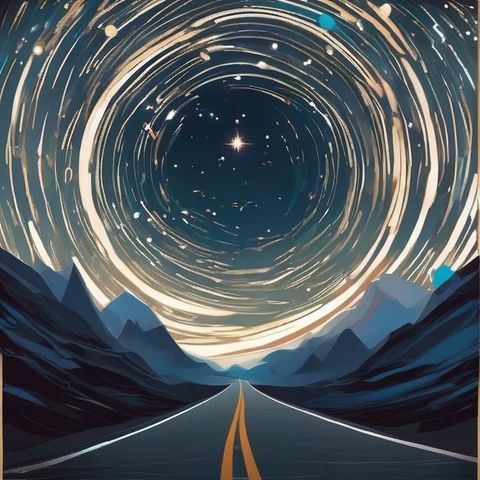ABOUT
Basics
Vedic Astrology, also known as Jyotish, is an ancient system of astrology that originated in the Indian subcontinent thousands of years ago. Rooted in the sacred texts known as the Vedas, this time-honored astrological tradition holds profound significance in Hindu culture and continues to be practiced to this day.

Introduction to Astrology
At its core, astrology seeks to understand the relationship between celestial bodies and human life on Earth. It is based on the belief that the positions and movements of celestial objects such as planets and stars influence and shape various aspects of a person's life, including personality traits, relationships, careers, health, and shared destiny.
Celestial bodies in astrology are divided into two main groups: planets and lunar nodes (Rahu and Ketu). Each of these entities carries unique symbolism and attributes, contributing to the complex interpretations and readings provided by astrologers.
Brief description of each celestial body:
Sun: Considered the soul of the universe, the Sun represents life force, ego, leadership, and willpower. It symbolizes the basic essence of a person's personality and governs his general self-expression and purposefulness.
Moon: embodies emotions, intuition and the subconscious. It plays a decisive role in shaping a person's emotional reactions, nurturing tendencies, and instinctive behavior.
Mercury: Mercury governs communication, intellect and dexterity of mind. It affects a person's ability to learn, adaptability, and how they formulate their thoughts and ideas.
Venus: Associated with love, beauty, sensuality and creativity. It affects a person's romantic inclinations, creative pursuits, and harmonious interaction with others.
Mars: Represents energy, courage and assertiveness. It governs the desire, ambition and ability of a person to act, and also influences his competitive and aggressive tendencies.
Jupiter: He is often referred to as the "Great Benefactor" and is associated with wisdom, expansion, and good fortune. He governs spirituality, higher knowledge and philosophical pursuits.
Saturn: He is known as the "Strict Teacher" and represents discipline, responsibility and karmic lessons. This affects a person's stamina and resilience, as well as areas where they may encounter challenges and limitations.
Rahu: This is the North Node associated with ambition, desire and material gain. It represents those aspects of life that need to be developed and can sometimes lead to obsessions and out-of-the-box behavior.
Ketu: This is the South Node associated with spirituality, detachment and liberation. This signifies areas in which a person can have past life experiences and the potential for growth through spiritual pursuits.
In astrology, the unique arrangement and interaction of these celestial bodies at the time of a person's birth is plotted on a birth chart or horoscope. Experienced astrologers then interpret this chart to gain insight into a person's life path, strengths, weaknesses, and potential life events, helping people better understand themselves and make informed decisions along their life path.